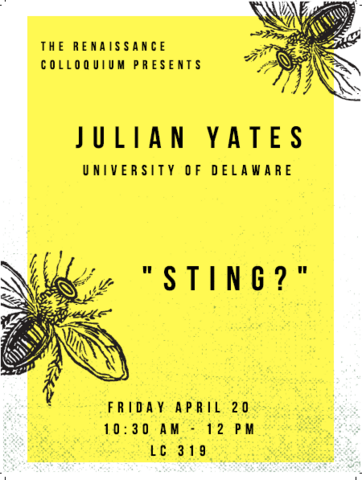In Act IV, scene ii of Henry VI, Part II (1590/91), rebel-leader Jack Cade pauses to remark the strangeness that is parchment. “Is not this a lamentable thing,” he asks, “that of the skin of an innocent lamb should be made parchment; that parchment, being scribbled o’er, should undo a man? Some say the bee stings,” he elaborates, “but I say, `tis the bee’s wax; for I did but seal once to a thing, and I was never mine own man since” (4. 2. 72-76). The “sting” Jack remarks is, of course, metaphorical. It refers to the wax seal on the parchment that renders it legally binding. But still the sting registers very real deprivations. Indeed, the metaphor seeks to capture the figurative heft to wax by trading on the literal ability of bees as insects with a stinger and the literal pain Jack would feel had he been stung by a bee. In this paper, I inquire into what exactly an audience might have understood a “sting” to constitute, what a stinger was, and what it felt like to be stung by an animal that was understood to have its own particular regime of sovereignty. The inquiry enters the worlds of early entomology by way of treatises on apiary but also, counter-intuitively, into the world of thatching and roof maintenance, for the origin of the word sting lies not with insects but in the names for a variety of human tools for maintaining houses. What emerges, I argue, is something like a “multispecies impression,” the strange archive left us by acts of anthropo-zoo-geneses.
